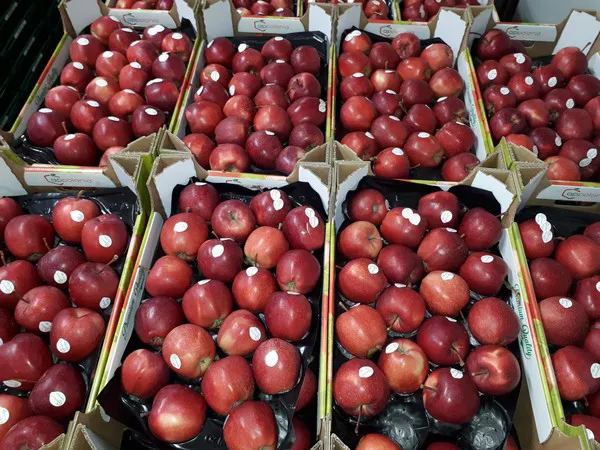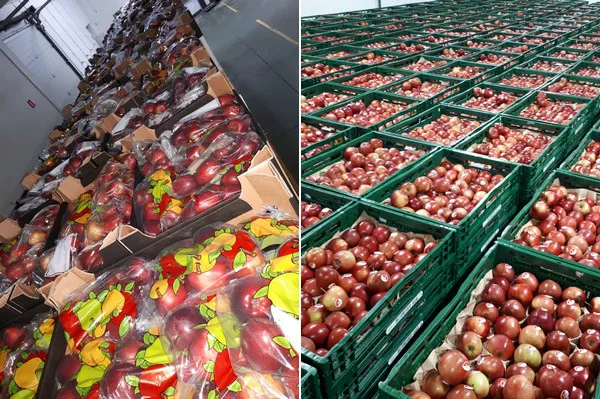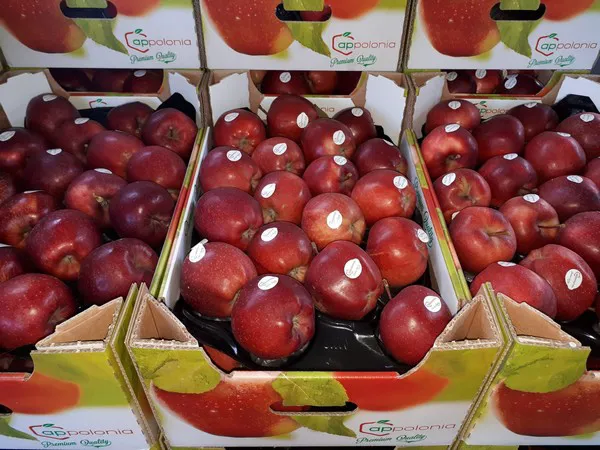Exporters of Polish apples are heading towards a rough season. With two important markets no longer being reliable, new markets will have to fill the gap they’ve left behind. Meanwhile, with the energy costs increasing at a rapid rate, some Polish companies might have to slow down their operation, or give up altogether.

Jakub Krawczyk, export manager for Polish apple exporter Appolonia, says the apple season is slowly getting into gear, with mostly orders from the domestic market right now: “At the moment, the demand is not so strong because the season has only just started. We are doing domestic supermarkets deliveries all the time, but generally export is just getting started and we will see which market will be the best receiver. Luckily, our partners have agreed with us to do some programs, like every year, so we have covered some percentage of production to European countries.”
With Egypt and Belarus no longer being reliable markets for the Polish apples, Krawczyk states that the big goal is to reach new potential markets this season. “Our biggest concerns are a shortage of big sales opportunities to countries like Belarus and Egypt. These two countries were the biggest receivers of our products in the last years, and because selling there is banned or nearly impossible at the moment, we are trying to open new markets or push more to the partners we were working with in other territories. We hope that some African or Asian countries will fill the gap that Egypt left behind and the sales will eventually move on. Everybody looks forward to getting a foothold in markets like the Middle East, which could be a good solution this year because the colour of Gala is just fantastic this season.”

Appolonia is also feeling the pressure when it comes to the ever increasing cost of energy. Even now it is uncertain what the rates for energy will look like in the new year, Krawczyk explains. “Unfortunately there is no good solution for the rising cost of energy right now. Our energy bills have increase by 500 per cent and most our production and storing depends on said energy. And there is still a big unknown in terms of what rates we will have for energy from January 2023. We can honestly say that the situation is quite dramatic right now. We have some plans on the table, but they are either very expensive or they could take up to 1-2 years to complete, and we can’t wait that long because the problem exists right now. It will for sure change our storing price and we can say with no doubt that the price will be high.”
The price of energy is reaching levels where some companies will have to give up or at the very least slow down their operation, Krawczyk confirms: “We heard some of the companies, who are using a high percentage of energy in their production, said they will stop their operation for some time, or do only a certain amount of orders. They have no other option as otherwise they will not be able to keep up with the energy bills. We also know that some of the companies from other sectors of production are closing completely or they fire people from the job to reduce the costs in any way they can. If companies will not produce and people will not have their jobs, the government will not receive money from taxes, so in our opinion there should be more programs and actions by the government to prevent this horrible situation.”

Krawczyk feels that the price of apples should increase as much as the cost has, but this hasn’t happened at all: “The biggest problem is that apple price is not rising adequately to the rising production cost. If you look at any other product you will find that it doesn’t cost the same as six or twelve months ago, unfortunately with apples, the price somehow stopped on a certain level. If growers will not cover their costs, they will be forced to sell their fields, machines or find some other method of earning, which I think is not the best option. Considering that lot of growers are continuing their family business that has been around for a few generations, we are proudly the biggest apple orchard in Europe, so no matter what we should keep up that tradition. How will those hard times affect our production; we will have to wait and see.”
For more information:
Jakub Krawczyk
Appolonia
Tel: +48 785 342 930
Email: [email protected]
www.appolonia.pl
